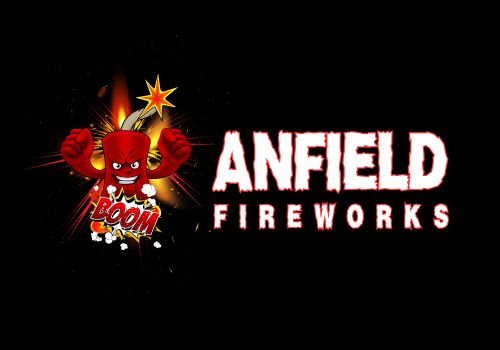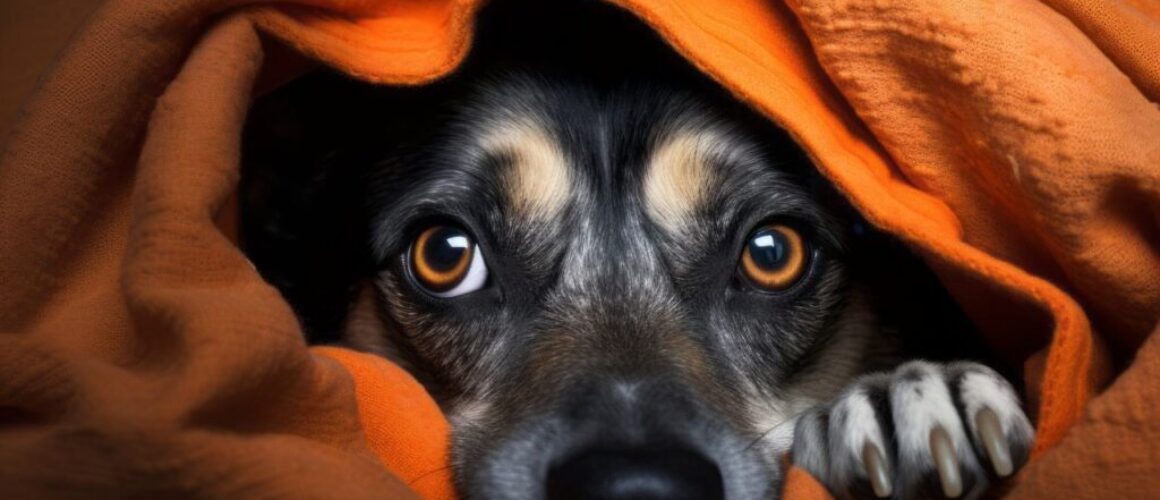How to Help Dogs Cope With Fireworks Season
While we humans might enjoy the spectacular bursts of fireworks, our four-legged friends often have a very different experience. If you’ve ever seen your dog trembling under the bed during a fireworks show, you know exactly what we mean. The good news? With some thoughtful preparation and the right approach, you can make fireworks season much less stressful for your canine companion.
Why Are Dogs Afraid of Fireworks?
Dogs have significantly more sensitive hearing than we do – they can hear sounds four times farther away and detect frequencies we can’t even perceive. So what sounds like an enjoyable pop and crackle to us might feel like an ear-splitting explosion to them.
It’s not just the noise, though. The unpredictability of fireworks – sudden booms with no warning – triggers their fight-or-flight response. Dogs don’t understand that these strange sounds pose no actual threat, so their bodies flood with stress hormones.
Fireworks also produce unusual smells and light patterns that can be disorienting. Your dog isn’t being dramatic – they’re genuinely distressed by the sensory overload.
Preparing Your Dog for Fireworks Season
Planning ahead makes all the difference. With fireworks displays being somewhat predictable (Guy Fawkes Night, New Year’s Eve, and summer festivals), you’ve got time to get ready.
Creating a Safe Space at Home
Dogs naturally seek out secure, enclosed spaces when they’re frightened. You can help by setting up a cosy den well before the fireworks start. Choose a quiet internal room where external noises are muffled.
Add familiar bedding with their scent, some favourite toys, and perhaps an unwashed item of your clothing. The combination of familiar smells creates a reassuring environment.
Blackout curtains can help minimise the flash of fireworks, which some dogs find just as frightening as the noise. Combined with a secure crate (if your dog is crate-trained), this creates a proper sanctuary.
Training and Desensitisation Techniques
With enough lead time, you can gradually acclimatise your pet to fireworks sounds. Start by playing recorded fireworks sounds at a very low volume while giving your dog treats and affection. Over weeks or even months, slowly increase the volume.
The idea is to create positive associations with these sounds before the real thing happens. This technique is most effective when started well in advance – ideally months before fireworks season.
Basic obedience training also helps. A dog who responds reliably to commands like “stay” or “place” is easier to direct during stressful situations. Practice these skills year-round for the best results.
Calming Aids and Anxiety Relief Products
The pet market offers various products specifically designed to reduce anxiety. Thundershirts and anxiety wraps apply gentle, constant pressure – similar to swaddling a baby – which many dogs find comforting.
Pheromone diffusers mimic the natural calming chemicals mother dogs release to soothe their puppies. These can be particularly effective when placed near your dog’s safe space.
For dogs with severe anxiety, your vet might recommend supplements like L-theanine or even prescription medication. Always consult your vet before trying any calming supplements or medications.
Keeping Your Dog Calm During Fireworks
When the big night arrives, your preparation will pay off – but there’s still more you can do in the moment.
Playing Music or White Noise
Background noise can mask the sound of fireworks surprisingly well. Classical music has been shown to have calming effects on dogs, with soft rock and reggae also proving effective in studies.
White noise machines, fans, or even the washing machine can create a consistent background sound that helps drown out the intermittent bangs from outside.
Television programmes with lots of dialogue work well too – they provide both sound masking and visual distraction.
Engaging Your Dog With Distractions
A mentally occupied dog has less capacity to worry about external sounds. Food puzzles and treat-dispensing toys can keep their brain busy while the fireworks are going off.
Try teaching a new trick or playing a gentle game of tug. The combination of mental stimulation and physical contact with you can be powerfully reassuring.
Particularly food-motivated dogs might enjoy a special chew that takes ages to finish – like a stuffed Kong that’s been frozen.
Staying Calm and Comforting Your Dog
Dogs are remarkably attuned to our emotions. If you’re anxious or frustrated, they’ll pick up on it immediately. Try to maintain a calm, matter-of-fact demeanour.
It’s perfectly fine to comfort your dog if they seek reassurance. The old notion that this “rewards” their fear has been debunked by modern behavioural science. Gentle strokes and a soothing voice can genuinely help reduce their distress.
What to Do If Your Dog Panics

Sometimes, despite your best efforts, dogs can still become overwhelmed by fireworks.
Avoiding Common Mistakes
Never punish your dog for fearful behaviour. Destructiveness, accidents, or excessive barking during fireworks are signs of panic, not disobedience.
Don’t force your dog out of their hiding spot if they’ve found somewhere they feel secure (as long as it’s safe). Dragging them out will only increase their anxiety.
Avoid letting your dog out in the garden unattended during fireworks displays. Even securely fenced gardens can be escaped by a panicked dog, and more pets go missing during fireworks season than any other time of year.
Emergency Measures for Severe Anxiety
If your dog shows signs of severe distress – excessive panting, drooling, trembling, or attempting to escape – call your vet for advice. They may recommend bringing your pet in or suggest emergency calming strategies.
For dogs with known severe reactions, your vet might prescribe fast-acting anti-anxiety medication to be given specifically on fireworks nights.
Supporting Your Dog Through Fireworks Season
With thoughtful preparation and a bit of patience, most dogs can learn to cope better with fireworks. The strategies that work best will depend on your individual dog’s personality and level of sensitivity.
Remember that older dogs and those with hearing loss might actually find fireworks less stressful, while young puppies experiencing them for the first time might need extra support.
By combining environmental management, training, and calming techniques, you’ll help your four-legged friend navigate fireworks season with minimal distress – and that makes celebrations better for everyone. And if you’re looking for premium fireworks for a memorable display, look no further than us at Anfield Fireworks!


